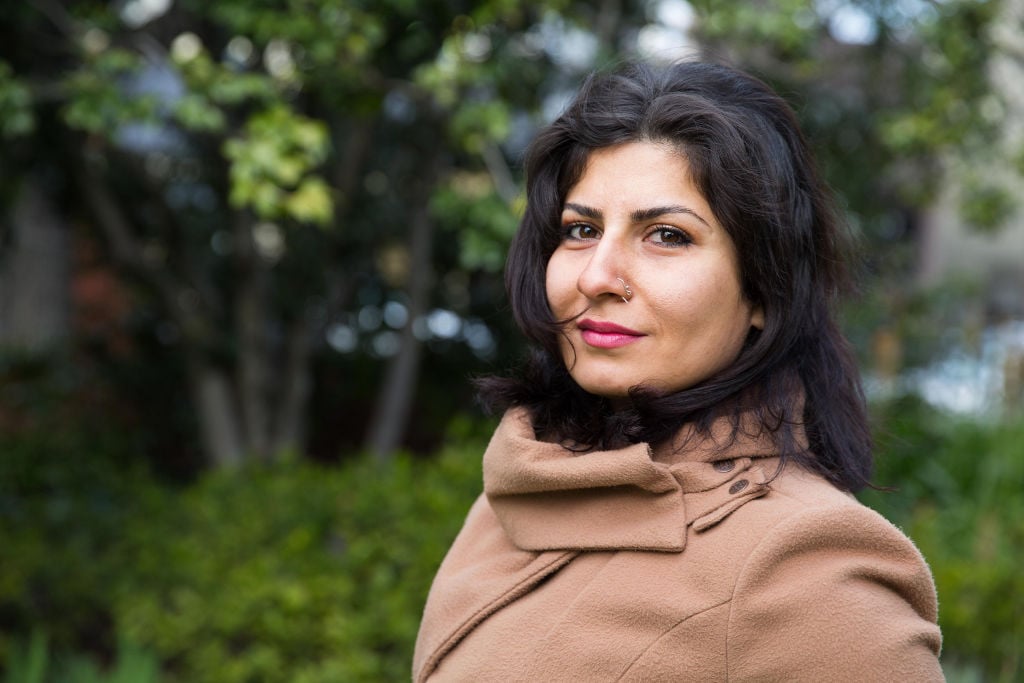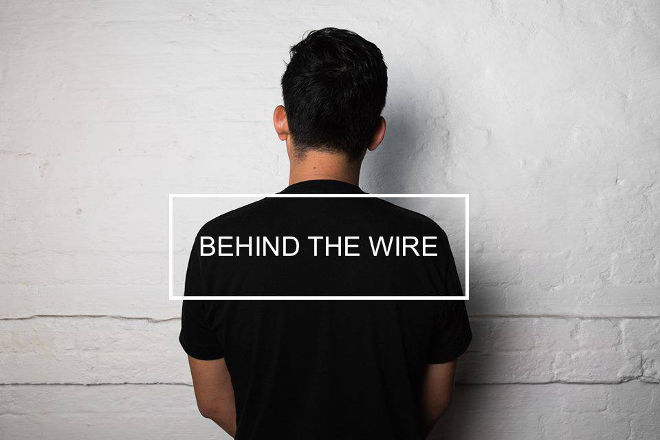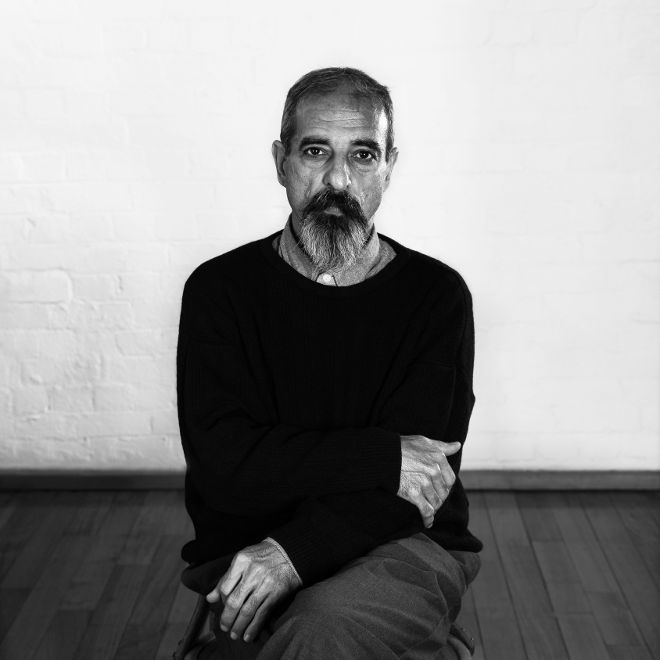On The Junket Agenda: A Crucial Thing Missing From The Asylum Seeker Debate
In all the conflict around detention centres, we rarely hear from the people affected most -- the people inside them.

In the lead-up to Junkee’s first youth unconference, JUNKET, we’ve asked a few of the 200 delegates to expand on the ideas they’re bringing, to help set the agenda for – and start the right conversations about — Australia’s future.
–
Earlier this year I sat in on a phone call between a lawyer and a young man named Hakim* in a Darwin detention centre. The line hissed and crackled as he told us about the conditions on Nauru, where he and his mother had been detained until just recently, when she’d gotten so sick that they’d been flown to Darwin for the medical care she couldn’t get on the remote Pacific island. Now the Department wanted to send them back.
There was an odd delay between Hakim’s anxious, hurried words and the flat translation of our call-in interpreter, so that his distress came out conversationally, as if this were all just routine. And soon enough, the lawyer had to cut him off – we just didn’t have the time to listen to everyone’s story. We had to get down the essential information and move on to our next phone call.
But Hakim had so much more to say. He wanted to tell us about his boat journey, about the racist detention centre guards, about his mother’s health and what he’d do if anything happened to her.
It wasn’t our job that day to listen to people’s stories. But then, whose is it? How many Hakims are there in our detention centres, and in the community – in our cities and suburbs – who’ve never had the opportunity to speak out and be heard?
We catch glimpses of these people, in news reports and op-eds that might quote a line or two from a refugee, though most often we’ll hear from an advocate, and then an Immigration Department official. Most of all we know these people as statistics and slogans. 3,617 are currently people in detention in Australia and on Nauru and Manus; “boat people”.
Which is why I started working on Behind the Wire, to start listening to people like Hakim, and then to amplify their voices so that they might be heard amongst all the noise coming from people who have never had to seek refuge in a foreign country.

Image via Behind the Wire/Facebook.
The idea is a simple one – to document, in their own words, the experiences of the men, women and children who have been through Australia’s mandatory detention system. And unlike the necessarily businesslike interviews of a lawyer or a reporter, our interviews are conducted at length, and are directed by our narrators. The results, we hope, are nuanced portraits of seeking asylum and life in detention.
What happens when we start listening to unheard voices? Abstract, jargon-filled conversations become more concrete, and terms like “detention centre” and “Regional Processing Centre” come into sharper focus. In the words of Osama, who now works as a mechanic in Melbourne’s northern suburbs: “And when we arrived to the detention centre, I saw the big gate, cameras everywhere, I thought, Oh my God, this is really a jail.”
And what is it really like to be a child in detention on Nauru? Mohammad, who was on the island as an 11-year-old, has vivid memories of the protests there: “I remember I woke up one morning and, as usual, you have nothing to do, you go around and look what’s happening. I saw three people who sewed their lips, stitched them up, and I’m looking at them going: how did they do it?”
But the most compelling thing about this project has been that our narrators are not simply passive victims. In each of the stories we have published so far, there have been unexpected moments in which our narrators assert their humanity in the midst of a system designed to dehumanise them.
Ali, who spent four years in detention centres across Australia, recounts the story of a party in Port Hedland detention centre: “One day, the activity officer she said to me, do you want to go with other Iranians to shopping centre? Just for fun…My friend said to her, okay I have to tell you something. I really want to buy alcohol and because you said I’m going to trust you, I have to tell you this. She said, I didn’t hear anything, do whatever you want. Just be careful because when we go back they might search you or the stuff you bought. He bought a carton of Coca-Cola, took all the Coca-Cola out. Then he bought a carton of beer and changed the carton. He bought two bottles of whiskey, one under my belt, one under his belt.”
Some of my favourite moments aren’t so much about resistance as they are about the surprising normality of the people we lock up in deserts and on remote islands. Donna arrived in Australia as a 13-year-old girl – and like any 13-year-old, she spent her time watching the small TV in the corner of their room. “There was a really, really handsome Australian actor. He was with this girl, his girlfriend. She had dreads and was always riding her bike and I was like wow!…The girl was wearing shorts, and I used to say to myself whenever I get out I’m going to wear shorts for the first time in my life. And then, I used to be like, I’m going to have a blond boyfriend too. I don’t care if my mum doesn’t allow it, I’m going to have a blond boyfriend.”
This month, Svetlana Alexievich won the Nobel Prize for Literature, the first time a writer has won the prize for books based entirely on interviews. Her oral histories unearth the forgotten stories of the Soviet Union: women in the military, the victims of Chernobyl, the Soviet war in Afghanistan. Her work forgoes the usual historical focus on action, on big political events. Instead, she tells history through the eyes of everyday people. Her work began during perestroika, the period when the Soviet Union began to open up to criticism – an opening that eventually led to its collapse.
For all the current talk of disruptions – whether through entrepreneurs or apps or changing working conditions – hearing from unheard voices is still the greatest disruption to business as usual. And business as usual might well be the worst thing about the whole system of detention – that our cruelty has become so routine, and our responses to it so predictable and automatic. That’s the power of the stories on Behind the Wire – that they still have the capacity to surprise us.
–
*Hakim’s name has been changed to protect his identity.
–
Junket takes place at the QT Canberra on November 1-3.
Visit the Junket website here.
–
André Dao is a co-founder of Behind the Wire.
–
All images by Emily Bartlett Photography unless otherwise indicated.
